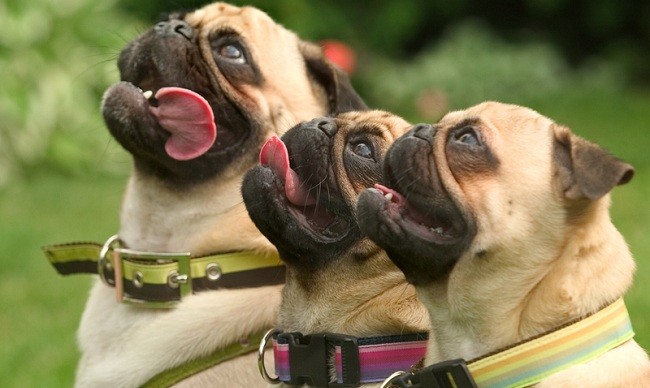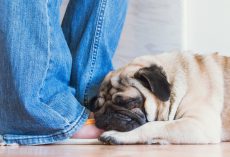This doggy behavior should never be discouraged. Find out why!
When your dog growls, your first reaction may be to try and stop it. Growling is not only acceptable; it's a desirable form of communication. Your dog is giving you a warning to back off or to tell you that he needs to be removed from the situation.
Why You Shouldn't Punish Your Dog for Growling
The punishment may suppress the growl but it will not change your dog's emotional state. Your dog will still be fearful or uncomfortable and the emotions could easily progress into aggression.It will also decrease the likelihood that he'll growl the next time something makes him uncomfortable, which means you'll lose out on this valuable form of canine-human communication.
What to Do When Your Dog Growls
If you know your dog may bite soon after a growl, immediately stop, back away and get to a safe place (you should also move away from any unfamiliar dog that's growling).If you know your dog may growl but is unlikely to bite, stop what you're doing but stay where you are.
When your dog relaxes, then move away (which rewards your dog for relaxing, not for growling). If necessary (and you know you can do so without a risk of being bitten), remove the dog from the situation.
Try to Eliminate Stressors to Your Dog
Dogs get stressed out too and, just like in people, the stress can add up. If you've had houseguests, for instance, a dog that's used to a quiet household may be on edge.
Overall, the more you can reduce stressors from your dog's world, the better, and for cases where the stress cannot be eliminated, at least be sure your dog has a safe, calm place to retreat to (such as a cozy crate).
To Address Growling, Address Why Your Dog Is in Fear
Growling is a symptom of larger issue; a sign that your dog is afraid and unable to tolerate a given situation. There's no need to punish the “symptom” of growling, as it's simply your dog's way of telling you that something's wrong.
Who knew that this doggy behavior was important?! It's always good to know what your doggy is feeling in order to prevent any other forms of aggression.
For more information on how to properly manage doggy behavior, be sure to check out Healthy Pets.










